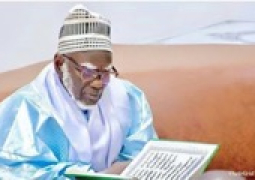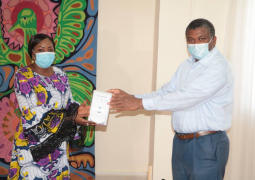
Mr Ceesay pointed out that “if we want to be serious as a nation we must not ignore” the most important stakeholder, the teachers.
He said the government and the private sector must take bold steps to invest in education for quality service delivery. He also called on government to “bring back” the new pay structure.
He also said that they were working with the Ministry of Basic and Secondary Education (MoBSE) to see that the School Improvement Grant (SIG) was increased as well as the retention allowance and double shift allowance and were hopeful that the ministry would defend their proposal at cabinet level.
“We are calling on government in no small term to invest on the teachers so that we can attain the quality education we are all yearning for,” he appealed, saying: “It is not the structures and beauties within schools that are going to impact knowledge on students but the teachers and they need to be highly motivated in order to be ready to serve unconditionally.”
The GTU president says that when a teacher is happy he gives his all in the job.
He observed that every year when GABECE and WASSCE results are out, there is always a blame game about who is responsible for the poor results, saying for that to end, government must invest on the teacher.
According to him, the people who matter “are ignored” and those whose absence or presence makes no difference “are considered or prioritized” when projects are to be implemented. “That is a recipe for failure,” he stated, saying: “Teachers' welfare has continued to be a challenge in this country since independence. The remuneration of teachers continues to be low comparatively as less significant players in national development.”
He added that investing in education is critical for promoting economic growth, social cohesion, peace, lifelong learning, and faith integration.
He described education as the foundation of any society, saying investing in it is crucial for the future.
The teacher congress brought together representatives from across the regions who have been elected by their peers to participate in the democratic process of shaping the future of education and advocating for the rights and welfare of teachers.
The democratic process ensures that the voices of teachers are heard and that decisions are made by those who are most affected by them.
The Gambia Teachers Union, as a collective body, holds immense power in influencing education policies and advocating for the rights of teachers.
Through the congress, teachers have the opportunity to discuss and address the challenges teachers faceand collectively work towards solutions that will improve the quality of education and service delivery as teacher unions around the world have increasingly embraced a commitment to social justice and equity in education.
The congress provided a platform to reaffirm and strengthen the commitment of teachers, ensuring that their rights and well-being are protected and that every student has access to a quality education.
The decisions made at the congress will have a direct impact on education policies and practices in The Gambia. By engaging in thoughtful discussions, sharing experiences, and proposing innovative ideas, teachers have the power to shape the direction of education in the country and contribute to the overall development and progress of the nation.
The theme for this year's National Delegates Congress was “Invest in education for quality service delivery”.
Read Other Articles In Headlines





